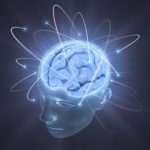Brain Preservation and Personal Identity Part I
This will be the first in a series of articles discussing brain preservation, personal identity, whole brain emulation, and mind uploading. Each article will introduce and consider a single focused concept, and therefore will not represent a full presentation in isolation. It is our intent that only the completed set of articles should sufficiently cover these topics.
John Locke initiated the modern debate about personal identity in 1790 in his Essay Concerning Human Understanding. The concept of personal identity is very simple to understand but quite difficult to formally define. In common sense terms, the question of personal identity involves determining if you are the same person you were yesterday, one year ago, or when you were an infant. In the Essay Concerning Human Understanding, Locke proposed what is now called the memory criteria of identity. Locke suggested that identity continues as long as there is a continuity of memory. For example, a person at time T2 is the same person at time T1 if they have memories of being the person at T1. Thomas Reid pointed out a flaw in this definition of identity in his famous example of the brave officer. Reid asks us to imagine a brave officer who remembers being flogged as a child for stealing from an orchard. When the officer is much older he becomes a general and remembers being the brave officer who took the standard from the enemy but no longer remembers being the young man who stole from the orchard. According to Locke’s memory theory, the child and the brave officer are the same person, the brave officer and the general are the same person, but the general is not the same person as the child. This shows that the memory relation is not transitive (a transitive relation is such that if x = y and y = z then x = z) and this leads to the counterintuitive conclusion that the general is not the same person as the child. The logical relation of identity is a transitive relation and many philosophers have assumed that personal identity must also be a transitive relation.
If we fast forward a few hundred years we find that Locke’s theory is still a central part of the modern debate about identity. The modern or Neo-Lockean variant of the memory theory is known as the psychological theory of identity. The psychological theory defines identity as overlapping chains of direct psychological connections. Psychological connections are not limited to memory and include personality and beliefs. Psychological identity overcomes Reid’s objections as there is a direct continuation of psychological traits from the child to the general. The psychological theory is the most prominent of the current theories among philosophers and is consistent with modern neuroscience. Since the mid-nineteenth century, the systematic study of brain lesions has made it absolutely clear that the mind originates from, and depends on, the brain. Modern neuroscience has identified the neural connections and their strengths (i.e. the connectome) as being the key to the continuation of psychology, beliefs, and memory. The goal for successful brain preservation should then be the complete preservation of the connectome. If the connectome is preserved then neuroscience and the psychological identity theory tell us personal identity is preserved.
The strongest competitor to the psychological theory is the body or biological theory (also called animalism). These theories suggest that identity follows the physical matter of the body (and its causal connections) through spacetime. In some versions of the biological theory only the matter in the brain is crucial for identity. Thus the brain identity variant of biological identity would agree that accurate chemical brain preservation preserves identity. It is a small matter to scale up chemical brain preservation to whole body preservation. Accurate chemical preservation of the body would preserve identity according to the body (or animalism) theory of identity. The empirical evidence of neuroscience supports brain identity but not body identity. Proponents of biological theories of identity might agree that chemical brain or body preservation preserves identity, but they differ from proponents of psychological identity in regards to the usefulness of this preservation. The best current protocols for brain preservation involve cross linking proteins with glutaraldehyde, which is an irreversible process. Barring future miraculous nanotechnology there is no way to restore preserved brains to living tissue. Proponents of psychological identity do not see this irreversibility as a problem since the information of the connectome is preserved. Therefore, it may be possible to use this information to emulate the connectome in a computer (this process is termed whole brain emulation). Given that brain and psychological identity are both consistent with neuroscience yet have opposite implications on the usefulness of chemical brain preservation, how do we choose between them? In a subsequent blog entry we will examine some philosophical thought experiments that can help determine whether brain or psychological identity is the most sensible. We will also examine some problem scenarios that test our intuitive understanding of identity.
Suggested Readings:
John Locke (1790) Essay Concerning Human Understanding — Available online at:
http://oregonstate.edu/instruct/phl302/texts/locke/locke1/Essay_contents.html
Thomas Reid (1785) Essays on the Intellectual Powers of Man — Available online at:
http://www.earlymoderntexts.com/authors/reid.html
Derek Parfit (1984) Reasons and Persons










i For one have made up my mind to see the year 3015 and i know mind upload will surely make that possible